| | Billie McTernan’s creativity, Burkina’s outstanding architect, Nigeria’s spicy treat͏ ͏ ͏ ͏ ͏ ͏ |
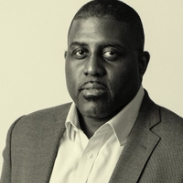 | Yinka Adegoke |
|
Hi! Welcome to Semafor Africa Weekend, where we help you relax into a new week by taking in the creativity and energy that keeps the continent vibrant. The reason we wanted our weekend newsletter to focus on the economics of culture is very much captured in my essay piece today on African soft power. There have long been African moments in Western-led global pop culture from the days of Miriam Makeba in the sixties to Manu Dibango in the seventies to ‘World Music’ in the eighties and then a living icon like Nelson Mandela in the nineties. There have been more than that of course, but not many more. The difference this time is that it feels more than a moment. It feels like there’s an opportunity beyond just pop music and Netflix hits. It feels like time for a meaningful discussion about how to use this natural goodwill for more than the usual cultural bragging rights. This is why talking about what African soft power can be is such a refreshing conversation to have here with the people we spoke with, even when they brought us down to earth by acknowledging the realities of Africa’s numerous challenges. 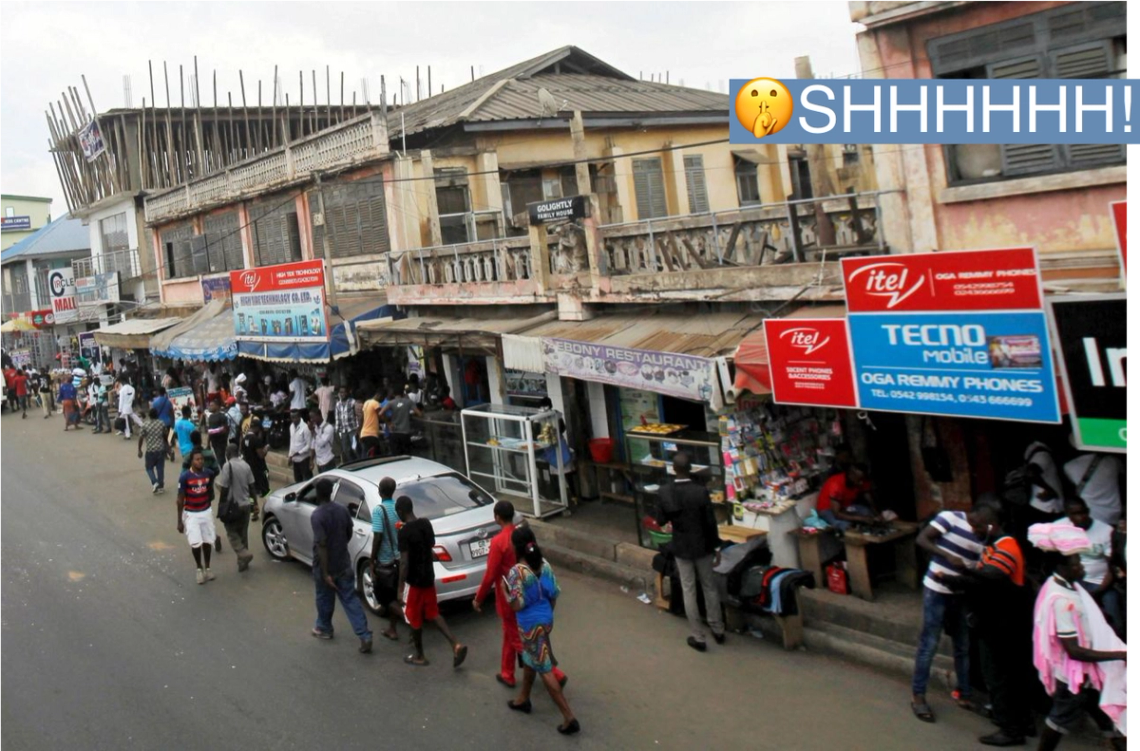 Reuters/Luc Gnago Reuters/Luc Gnago🇬🇭 Ghana’s Ga communities in the capital, Accra, hold an annual harvest festival for a month at some point between May and September, during which they ban all synthetic sounds. Those noises range from radios and public address systems, to cars and religious ceremonies. The aim of the noise-banning ritual is to allow the steady drone of sea waves to allow for communal reflection and renewal, writes Laryea Akwetteh in The Conversation. Akwetteh, who is researching elements of the festival, argues that the ritual allows for introspection because it invites participants to “focus on their indigenous notions of sound, silence, noise, and even death.” 🇸🇳 A new documentary by Al Jazeera explores the lives of Senegalese women who lost their menfolk after they attempted the nearly 1,000-mile boat journey to Europe. The passage from West Africa to the Canary Islands is incredibly dangerous and mainly undertaken by young men. One widow said her cousin told her about the death of her family members. “He saw corpses there, but they weren’t identifiable. They all looked the same on the beach,” she recalls. In 2022, 543 people drowned in 45 boat accidents, according to the International Organization for Migration, which records the number of people who do not complete the journey. 🇺🇬 The traditional burial rite of the Jopadhola people in Uganda, in which men play a long hollow drum called a fumbo, is becoming rare as villagers choose DJs playing modern music instead, writes Beatrice Lamwaka for Global Press Journal. After someone from the Jopadhola dies, the body is washed in banana juice and dressed in ceremonial clothes. Mourners light a bonfire at the deceased’s house and begin the ajore dance. “The men play the fumbo and dance with spears, as if to stab death itself for taking their loved one,” explains Lamwaka. However, it is becoming increasingly common for DJs to play modern songs on large sound systems. |
|
Why Africa’s soft power matters |
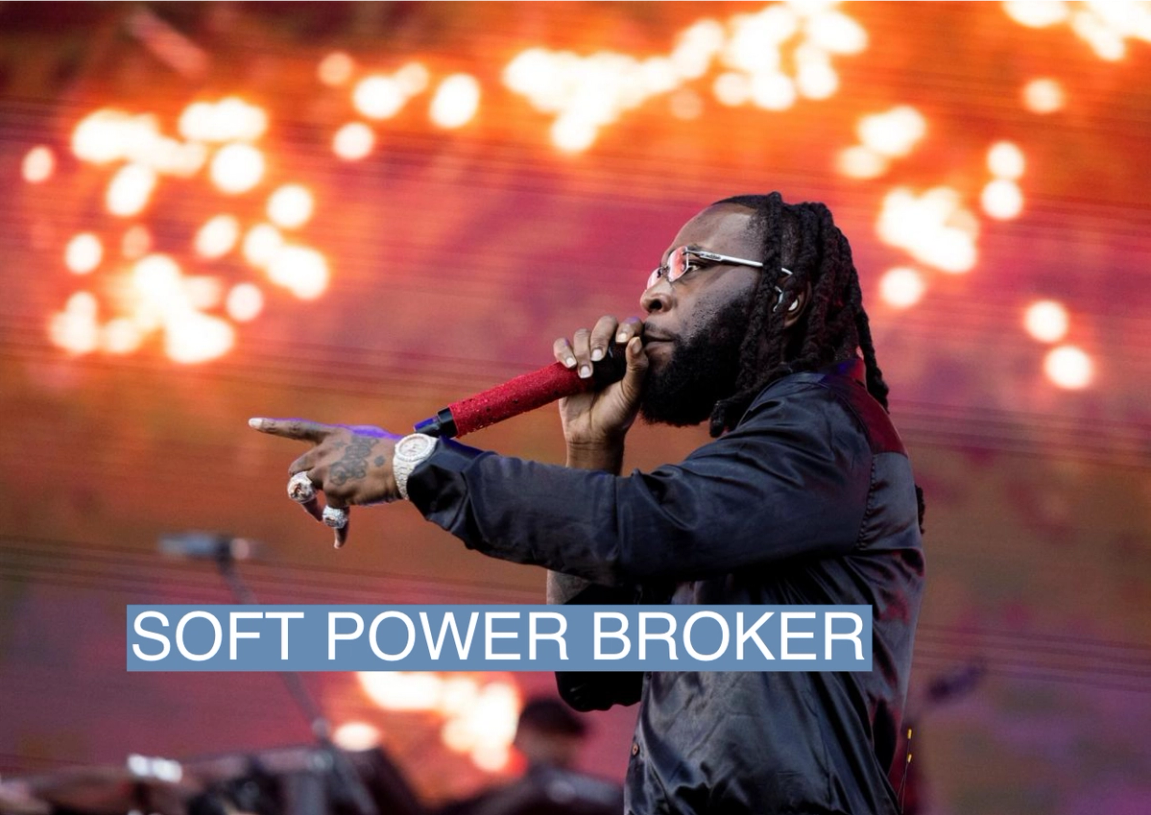 Reuters/Aude Guerrucci Reuters/Aude GuerrucciSoft power is a concept first coined by the political scientist Joseph Nye in his seminal 1990 book Bound to Lead. It’s defined loosely as a nation’s ability to influence other countries by using tools such as political values and cultural exchange, rather than a threat of economic sanctions or conflict. In geopolitics, soft power is the carrot rather than the stick of international relations. The concept of soft power has evolved into a much wider conversation about the influence of everything from hip-hop and Hollywood to China’s Wolf Warrior movie series. It’s something Equity Alliance CEO Claude Grunitzky experienced first hand during a recent cab ride in Kyoto, Japan. “My Uber driver was playing Afrobeats,” he said. “People are now asking me questions about Africa via music, but that’s an opportunity for me to tell them about what’s happening in contemporary art or literature, for example.” Grunitzky, originally from Togo, marvels at how Africa’s soft power has grown since he founded hip-hop magazine Trace in the nineties. Trace launched a TV network across Africa in 2003, driven by his belief that African youth-led sounds would one day become global pop music. There are also now soft power indices to figure out which countries exert soft power with the most impact. Only a handful of the larger African countries ever feature on these lists and often near the bottom. However, there’s now a move to reappraise what African soft power could look like in the world of political science and around pop culture influence. YINKA’S VIEW Sounds like Afrobeats and South Africa’s Amapiano have opened up Africa pop culture to the world, in the much the same way as Claude found with his taxi driver. Just a few years ago Burna Boy protested being relegated as a side act at Coachella, the huge California festival. This year he had top billing after selling out Madison Square Garden last year. That’s the vision Nkiru Balonwu has with the Africa Soft Power Project, which she started during the peak of the pandemic in 2020 as a convening of African creative industry leaders on webinars. It evolved into a series of in-person events from Kigali and Lagos to Hollywood and New York. Like Grunitzky, Balonwu believes much of Africa’s soft power lies with its youth in creative industries in the same way that Hollywood, TV shows and music complement the economic and military might of the United States. “This is where our real strength lies, and we just haven’t been able to understand it before now,” she said. 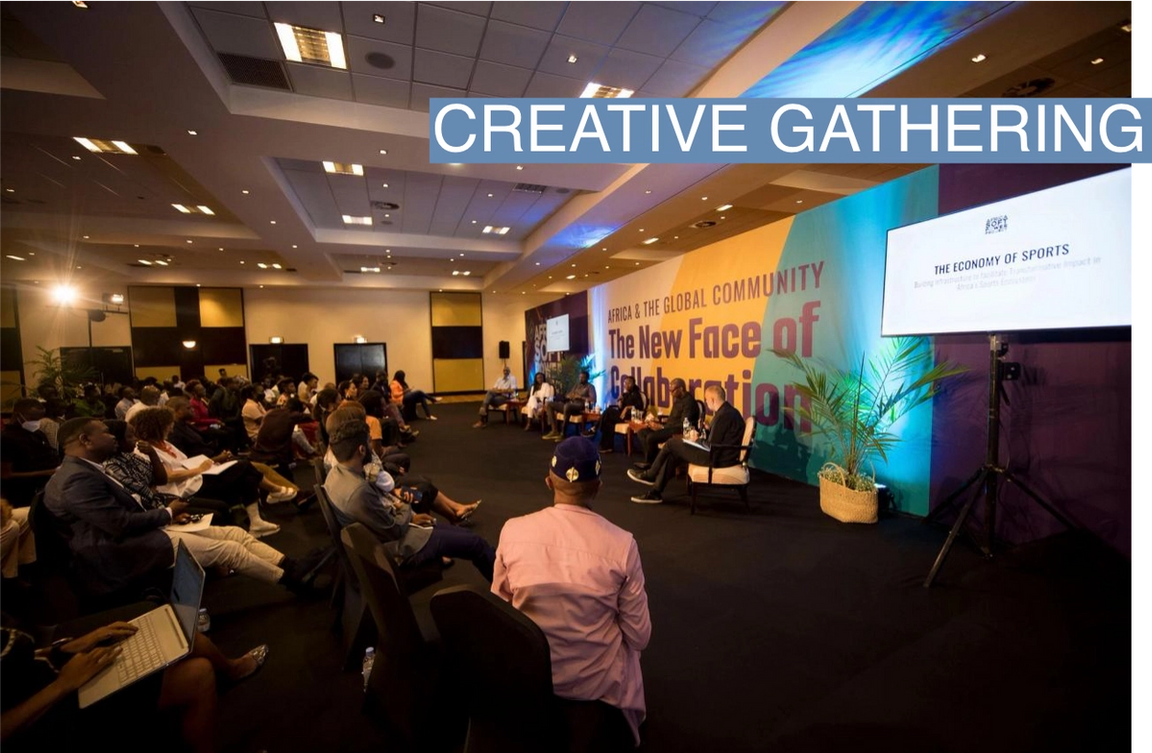 Africa Soft Power Project Africa Soft Power ProjectWith the Africa Soft Power Project, Balonwu is determined to drive the conversations about creativity and gender inclusivity as well as economics, finance, and the data that underpins it. Concepts like ‘soft power’ can sound vague and ephemeral without having a way to quantifying what they mean to a given audience. This is why a key part of Balonwu’s project focuses on researching and building data. “There’s a huge dearth of data on the continent,” she said. “Imagine the decisions that are being made from bad data because of this.” THE VIEW FROM BEIJING China is often described as being at a disadvantage to the U.S. when it comes to winning ‘hearts and minds’ in Africa due to the familiarity of American popular culture and language. Chinese filmmakers have tried to change that, most notably with the Wolf Warrior movie series. Wolf Warrior 2, the second-highest-grossing movie ever in China, features a Chinese fleet rescuing Chinese citizens caught up in a civil war in an African country. The movie has also spun off a theme called Wolf Warrior diplomacy which is when Chinese diplomats show an assertive style of diplomacy. ROOM FOR DISAGREEMENT Most African countries and their leaders just don’t have the capacity or desire to prioritize developing a soft power strategy, argues Gyude Moore, a senior fellow at the Center for Global Development in Washington DC. “For people who are consumed with providing the most basic of needs, soft power doesn’t cut through.” NOTABLE “One of the biggest things we have found is that the appetite for change is definitely there,” said Nkiru Balonwu in this interview about the Africa Soft Power Project with New African. |
|
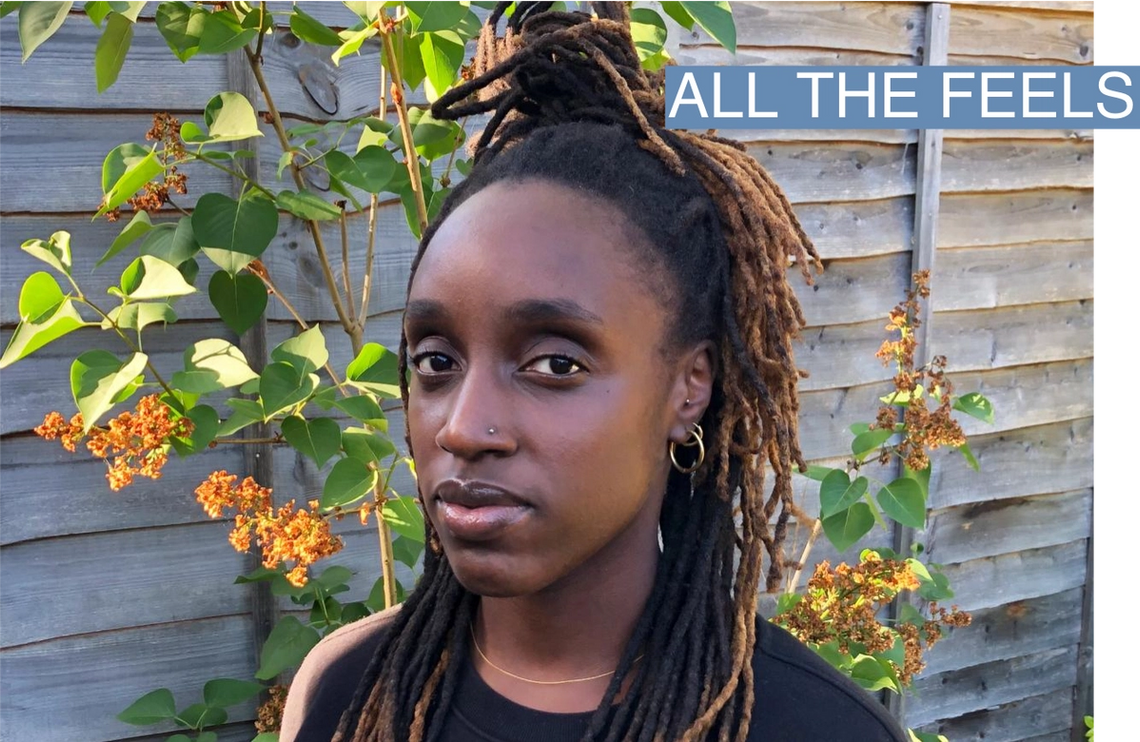 Okhiogbe Omonblanks Omonhinmin Okhiogbe Omonblanks OmonhinminBillie McTernan is a writer, artist, and editor based in Ghana’s capital, Accra. She was shortlisted for the 2022 Caine Prize for African Writing for her short story, The Labadi Sunshine Bar, about sex work in Accra. The judges said it “compresses time, multiple events and space into a riveting narrative of contemporary significance.” 💡What inspires you? I draw inspiration from things that speak to my senses. I’m inspired by sights and sounds. It could be several different things — birdsong or the smell of cooked food. If I’ve smelt something, seen something or felt something, it leaves an impression on me. 💡Which African writers most excite you at that moment? I have to give a shout out to my colleagues on the Caine prize shortlist. I think they’re all inspirational. I loved all their stories and I know from conversation that they have very exciting ideas about things they want to write. I also follow the work of Emmanuel Iduma who has an artistic and literary eye that interests me. And I always love to read Yewande Omotoso. She has a book that came out last year, an Unusual Grief, that I’m really excited to read. Ndinda Kioko, a Kenyan writer, is just phenomenal. Everything she writes, going back to that point I made about my senses, really gives me all the feels. 💡Which African literary scenes have caught your imagination recently? The scenes that mostly capture my attention are the scenes that I already have existing networks and friends in Nigeria and Kenya, and of course Ghana. There’s a cross-continental connection that finds its way from west to east and back again that it always feels really good to be part of. 💡What one piece of work by an African writer would you recommend? The Hundred Wells of Salaga, by Ayesha Harruna Attah, is something I read in the last five years that I often think about. It’s a great piece of historical fiction. I feel it’s the kind of book that should be on a school curriculum. — Alexis Akwagyiram |
|
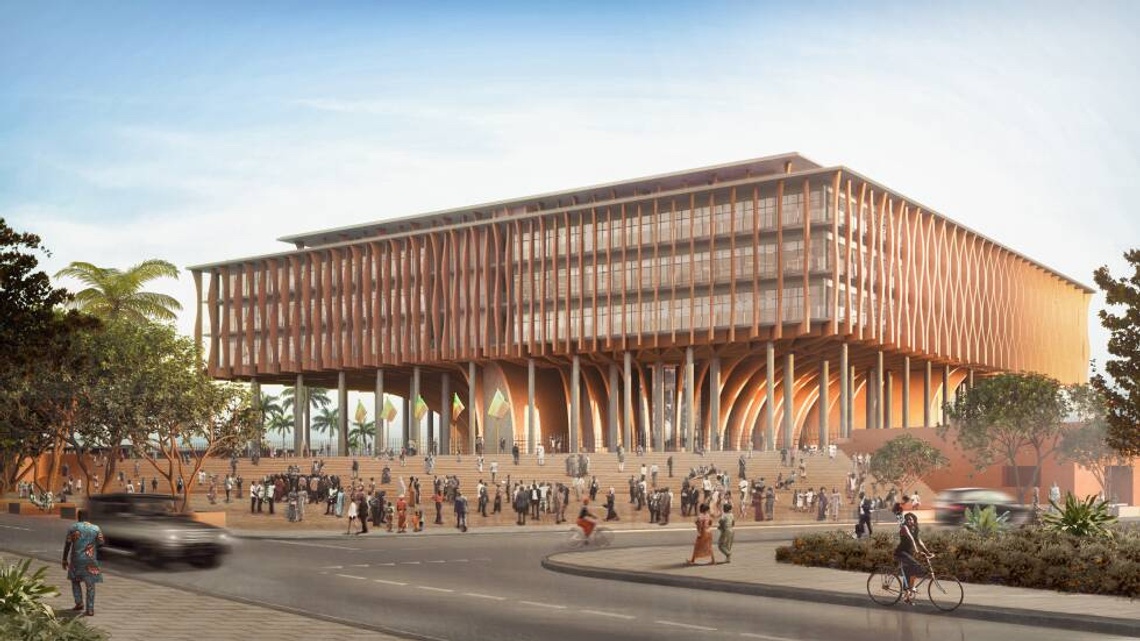 Kéré Architecture Kéré ArchitectureFrancis Kéré, the first African to win the prestigious Pritzker Prize for architecture last year, will now have a Yale Architecture scholarship in his name. The Burkina Faso architect, whose firm is based in Berlin, has been a visiting professor at Yale School of Architecture since 2019. The scholarship, which starts in the fall, is dedicated to supporting architects from Africa studying at Yale. Kéré, 58, first came to prominence for his design of a primary school in his Burkinabe home town using low-cost and sustainable materials. He’s since received recognition for major projects including the Serpentine Pavilion in London, the Léo Surgical Clinic & Health Centre, and the gathering pavilion at Tippet Rise Art Center in Montana. He also designed the 35,000-square-meters Benin National Assembly which is being built in its capital city Porto Novo (rendering above) and is expected to be completed this year. |
|
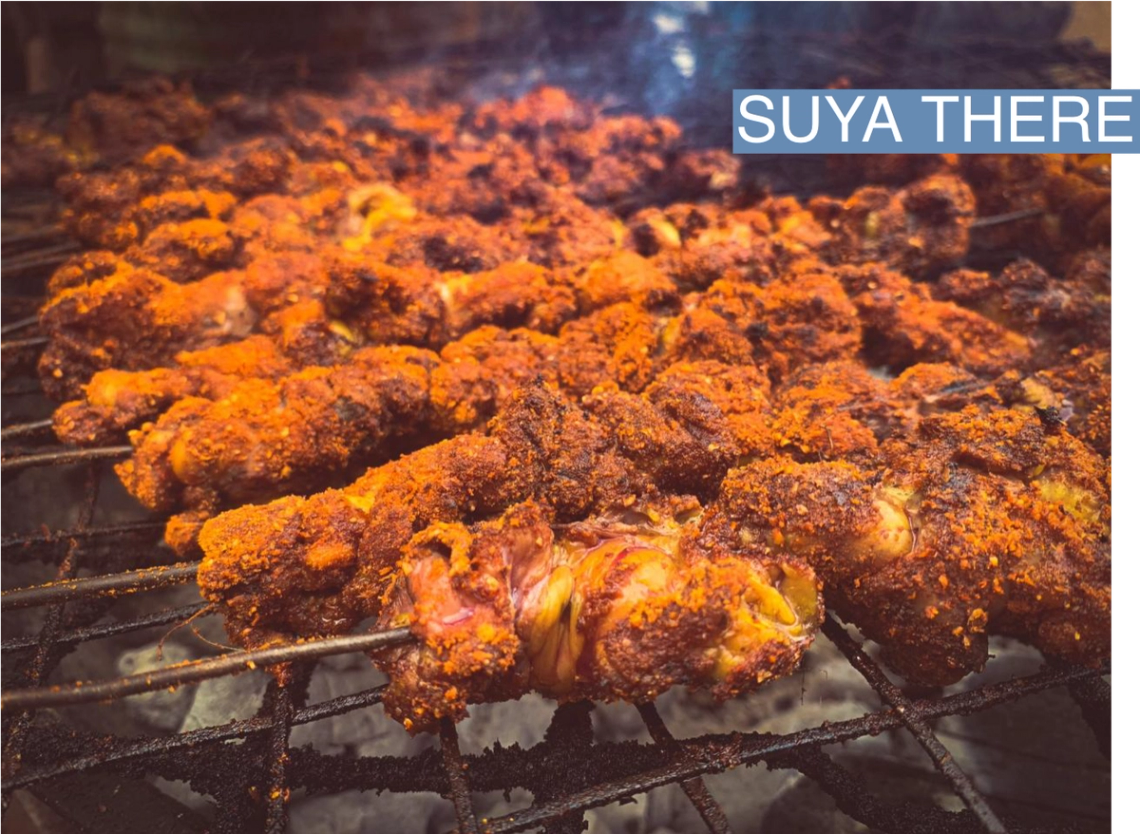 Ayodeji Ogunro/Creative Commons Ayodeji Ogunro/Creative CommonsThe sight of grilled meat stacked up on sticks by a fireplace is the biggest attraction at Yahuza, an expansive leisure spot adjacent to the Central Mosque in Nigeria’s capital, Abuja. Every Friday evening, dozens of cars throng the gate as patrons file in to usher in the weekend with mouthfuls of hot, peppery suya. Suya is a kebab-style dish that has a distinctively spicy kick. The crowds at Yahuza and other Abuja suya spots are replicated in much of the country but it’s a northern Nigerian delicacy which has over the years become widely available across the country — and even in places abroad with large Nigerian communities like London. The snack is typically prepared in full view of diners. Raw beef or poultry is sliced into thin slices before being seasoned in a melange of flavorings that typically include ginger, cayenne pepper and ground peanuts. The meat, by now coated in a layer of seasoning, is then grilled over an open fire and dipped in vegetable oil. The resulting meat — piping hot, tender and spicy — is finally garnished with sliced onions, cabbage and powdered pepper before being served on paper to be eaten immediately or wrapped up to take away. Connoisseurs may pick another accompaniment — fluffy white rice cakes called masa which also hail from the north. Suya at Yahuza, where I got my fix last night, remains such a draw that when the vendor, a devout Muslim, takes a break for end-of-day prayers, it’s no bother for patrons who are happy to wait.
— Alexander Onukwue in Abuja, Nigeria |
|
- The East African Petroleum Conference and Exhibition will bring together industry leaders in Uganda’s capital, Kampala, to discuss regional developments in oil and gas. (May 9-11)
- The African Union Commission and the Common Market for Eastern and Southern Africa will host a ministerial conference in Bujumbura, Burundi, that focuses on the role of young people in improving security in East Africa. (May 9-12)
- Zambian President Hakainde Hichilema and Wamkele Mene, secretary-general of the African Continental Free Trade Area, are due to speak at the Africa Debate conference in London. (May 11)
|
|
If you’re enjoying the Semafor Africa newsletter and finding it useful, please share with your family, friends, fumbo fanatics, and suya lovers. We’d love to have them aboard, too. Let’s make sure this email doesn’t end up in your junk folder by adding africa@semafor.com to your contacts. In Gmail you should drag this newsletter over to your ‘Primary’ tab. You can reply to this email and send us your news tips, gossip, street food recommendations and good vibes. — Yinka, Alexis, Marché Arends, Alexander Onukwue, and Muchira Gachenge
|
|
| |







